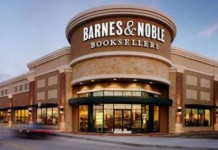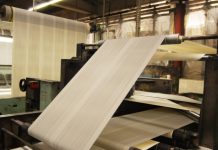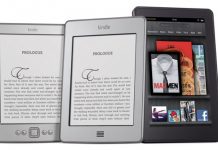 I know the article title is a bit odd, especially having been written by a booklover, but the question has been bothering me the past several weeks.
I know the article title is a bit odd, especially having been written by a booklover, but the question has been bothering me the past several weeks.
In the past, I went to my local Barnes & Noble at least once a week, sometimes more often, and always walked out with 1 new book and often 2 or 3. But for the past couple of months I have had no desire to visit the store and the one time I did, I bought 2 books rather than the 5 I had originally picked up (i.e., I put 3 back on the shelf after first having decided to buy them). Even more telling, however, was that I had gone to the B&N only because my wife needed to pickup some B&N gift cards for neighborhood children; otherwise I wouldn’t have gone at all. And even more telling was that in the past I loved to browse the shelves looking for books; this trip I was impatient to leave.
I’m not buying fewer books; in fact, since I was given my Sony 505 Reader 2.5 years ago, I’m buying more books than ever. But what has changed in my buying habits is the number of fiction books I am buying — from a handful each year pre-Sony 505 to hundreds each year post-Sony 505 – and how I am obtaining them.
As those of you who have followed my On Today’s Bookshelf posts (On Today’s Bookshelf, On Today’s Bookshelf (II), and On Today’s Bookshelf (III)) know, I still buy quite a few nonfiction hardcover pbooks. But whereas before I would largely find them by browsing the bookstore bookshelves, I am increasingly discovering them through ads and reviews in The New York Review of Books, the New York Times Book Review, and the book review sections of various magazines to which I subscribe, such as The Atlantic and Smithsonian. If I read a review of a book that intrigues me or see an ad for one, I simply go online and order the book.
Fiction books, however, follow a different trajectory. For those few authors whose new books I buy in hardcover (e.g., L.E. Modesitt, Jr., Robin Hobb, Harry Turtledove, David Weber, Terry Brooks), I go to an online site, check the coming soon category for these authors, and preorder the books. For those fiction authors whose books I do not buy in hardcover, the process excludes the brick-and-mortar bookstore because these aren’t authors I am likely to find on the shelves — they are independent authors. And the largest growth area in published books is books by independent authors whose books are only available online.
I discover independent authors via online forums like MobileRead and by looking through the multiformat section at Fictionwise and Smashwords. At Fictionwise, I wait for the big sales because I am unwilling to spend too much money on an unknown author; I usually get to Smashwords via a recommendation at MobileRead and often with a discount coupon.
But even then independent authors are losing out — at least as far as my buying goes — because I simply do not have the patience to sift through lists of books. Neither Fictionwise nor Smashwords makes it very easy to scroll through their offerings. There is no way to stop for the day, return tomorrow, and pickup where I left off — I am forced to start from the beginning of the list yet again, which rapidly becomes tiresome. And it doesn’t help when what I see is poorly designed cover art; at least in the physical bookstore browsing is much easier. (See Finding the Needle in a Haystack of Needles (II): eBooksellers for an earlier discussion of my ebookseller frustrations.)
The brick-and-mortar (B&M) bookstore suffers from an inability to compete either in price or selection. Independent authors are increasingly (or so it seems) pricing their ebooks at $2.99 or less. Knowing this makes me reluctant to try a new author I find at the B&M bookstore; it is one thing to gamble $2.99 on an unknown author and quite another to spend $12.99 or more.
So what is there to attract me to the B&M bookstore? As each week passes, I find it a greater struggle to want to go to the B&M bookstore. I’m not interested in the pastries and coffee; I rarely ever peruse the magazines; I can buy the same books online for less (in Barnes & Noble’s case, its online bookstore undercuts its physical stores on pricing so why buy at the B&M version?).
Are ebooks quickly making B&M bookstores uninteresting destinations? In my case, yes, because there is little incentive to shop at the B&M store, especially for fiction. Unfortunately, the online ebooksellers aren’t making their sites must-go-to destinations either. I think there can be a great future for B&M bookstores, just not in their current guise. I’m not sure what guise they need to undertake, but it is certain that they do need to make the experience an interesting one and they must become must-go-to destinations.
Editor’s Note: the above is reprinted, with permission, from Rich Adin’s An American Editor blog. PB


































It appears that B&N is trying to keep their bookstore relevant for people with devices that have a B&N reader on them. Free books if you stop in the store, coupons, etc. I’m not sure if the free read-in-store feature is only available for the Nook, though. I have purchased ebooks after reading part of it in the store. Unfortunately for you, the Sony eReaders aren’t supported, and Sony probably doesn’t have any incentive to upgrade to a B&N capbable ePub reader.
I love my bookstore visits. I make it a date, have a cup of coffee, browse books I’d never actually buy. But like Rich, I find myself doing so far less frequently than I did in the past. I have assumed this is partly due to my job (my ‘spare’ reading time is largely devoted to submissions rather than NYT best-sellers), but it is also largely due to the convenience of the Internet and eBooks. I can download virtually any book to my Kindle or eBookWise, have an unlimited library of public domain books from Gutenberg, and never have to leave the house.
Years ago, the bookstore was a daily or at least weekly ritual. Now, it’s every couple of months. I do appreciate Barnes and Noble trying to stay relevant and wish them the very best of luck. I’d miss the brick and mortar bookstore…even if I’m no longer the regular I once was.
Rob Preece
Publisher
I don’t enjoy shopping but the one store that I could never walk past was a book store. That changed when I bought my e-ink reader. I’ve been in a book store twice in the last 3 years and that was to buy specific gifts.
I’m buried in digital books and have no interest in browsing randomly for more.
My husband and I are still going to the bookstore mostly out of habit. We occasionally buy a book there, but much, much less often than we did pre-Kindle. For many years, our habit has been to go out to dinner on Tuesday then go by the bookstores to see what’s new, but I’m not sure how long force of habit is going to keep that going.
Maybe the problem is Barnes & Noble?
I love going to our local independent bookstores. We have a couple of great ones that sell new & used books, and when you walk in, they have well-currated tables of new and interesting books. And I walked into City Lights Bookstore in SF last weekend and walked out with four paper books.
Don’t get me wrong – I love ebooks and read them all the time. But I have yet to find an online bookstore that replicates that experience. I always have to know what I want first.
I’ve been into Barnes & Noble more times in the 3-1/2 months that I’ve had my NOOK than in probably the 10 years prior to that.
I’ve bought my print books online for some years now, and will continue to do so. Going to a bookstore seems a waste of time.
For NOOK owners, Barnes & Noble has been providing some nice incentives to drop by the store once a week or so. Those would be more compelling if certain store managers didn’t undercut the incentives by making it a point to drive away anyone who wants to do anything more than zip in, pick out whatever they want to buy, check out, and leave.
I probably won’t be visiting the Barnes & Noble stores as frequently as I have the past few months. It just hasn’t been a pleasant experience for me (at the stores near me—each store is different).
I still love the cookbooks and decorating books in paper. I enjoy going to the bookstore for that. Increasingly though, I am finding I prefer the public library. Plenty of bright shiny paper to look at, I can download new release library books right onto my computer, it’s air-conditioned and there is free wi-fi.
Joanna, thanks for the plug for public libraries! Although ebooks and the internet are causing many changes for that institution as well.
One of the things I enjoy the most about ebooks is those independent authors, small presses and forgotten gems from the public domain. The mainstream offerings at bookstores don’t interest me as much anymore. That said, I would hate to see the demise of the B&M stores.
I love travel, photography, and music so when I go to a B&N (just as often as before, which is not often but regularly) I can spend 3 hours there enjoying looking at their paper books and their music and DVD dept as well.
Kara, there was a great article I posted about on Teleread awhile back about a local library branch that had a renovation. The librarians spoke about how people in the community were not looking at the new branch as a ‘repository for books’ but rather as a ‘community meeting place’ and how they were happy that something exciting was going on in the neighbourhood. I think librarians have a valuable role as people who can lead their patrons to information—be it information on a computer, in a paper book, at a community service they can direct them towards etc. Increasingly, I think bookstores are picking up on this vibe too and having author events and other activities that just get people there and get them excited about it.
Now that I have an iPad which can go all day without charging, the library actually beats the bookstore as an air-conditioned hangout spot (I do not have air-conditioning at home) because of the free wifi. I can go there and read, hang out and actually get work done too thanks to the wifi. I can even use Dropbox to access my files from home over the ‘cloud.’ There are plenty of couches and tables, magazines and newspapers, books too—and free wifi. Great place to work.
I agree 100% Joanna!
I, too, have “lost that loving feeling.” More and more like entering a museum, albeit one with lovely artifacts. I even riffed on this in my recent blog after an indie store dissed e-books–
http://hauntedcomputer.blogspot.com
To me, it’s about the story, not the medium.
Scott Nicholson
On the subject of the easy alternative of shopping online for books rather than spending time browsing in a bookstore:
Firstly I realise there is a proportion of readers who have a relationship with browsing in bookstores. I personally never understood it, other than a general love of ‘being around books’. I think it is a generational thing and also that is an experiential thing that is not something to grieve over wen it ends, and I think it is something that will be with us for quite a long long time to come.
Secondly we must keep in mind here that the choice of books in the average books stores is extremely limited and the choice of which books are held on the shelves is made either by the store owner or the distributor interweaved with margin issues and promotions being run by distributors on specific books unrelated to the quality of the books involved.
Browsing online provides a less focused choice yes – but a more democratic choice nevertheless.
Good online book sellers will present the buyer with clear and relevant descriptions, good categorisations, good sample chapters, reader reviews and reader ratings. They will also develop innovative ways of enabling new writers to get exposure.
Overall I think this is a buying method far more conducive to good purchasing decisions and hence more enjoyable reading. And the reading is what really matters.